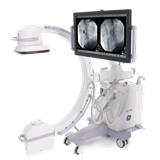The latest IBISWorld research highlights the industries tipped to enjoy strong growth in wages and high demand for skilled workers.
"Whether you are a school leaver, professional or someone keen to change careers, it is vital to be realistic about job prospects and to investigate your preferences thoroughly to maximise the payoff from education and up-skilling in your chosen field," advised IBISWorld Australia General Manager Dan Ruthven.
According to IBISWorld, broader trends influencing employment growth include an intensifying focus on productivity and reducing the need for manual labour across a number of industries. This, along with the ongoing push towards strong research and development of a technical nature, will drive demand for highly skilled equipment and systems operators and professionals with advanced degrees.
"With our economy in the middle of a transformation from manufacturing towards more knowledge-based industries, we are likely to see more employees up-skilling or re-skilling over the next five to 10 years," Ruthven said.
Older Australians drive jobs growth
Our ageing population is contributing to employment growth in the diagnostic imaging services and accommodation for the aged industries, with employment forecast to grow by an annualised 4.2 per cent and 5.6 per cent, respectively, over the next five years.
"Demand for diagnostic imaging is rising as the Australian population ages. Our ageing population is expanding the potential client base for imaging providers in the computerised tomography and nuclear medical fields. This will drive demand for specialist operators of PET and CT scanning equipment, as well as associated administrative staff to keep operations running smoothly," Ruthven said.
IBISWorld forecasts that providing accommodation for the elderly will be one of the country's largest growth industries in years to come, as an increasing number of baby boomers head into retirement and enter accommodation for the aged rather than nursing homes. Facilities within the accommodation for the aged industry range between low and high care, with growth in demand for the latter expected to be the strongest.
Energy still going strong
While growth in some sectors of the mining division is slowing, the oil and gas extraction industry is in the middle of an investment boom, underpinned by a pipeline of export-orientated natural gas projects under construction. This is driving employment growth in the industry.
"Higher crude oil and gas prices, combined with surging gas production, are projected to aid robust employment growth in the oil and gas extraction industry over the next five years. Employment is forecast to grow at a strong annualised rate of 11.3 per cent," Ruthven said.
Higher investments into oil and gas extraction will also boost employment growth in the mining support services industry.
"Mining support services firms specialise in labour-intensive and technical services, such as cementing to seal drilling holes and directional drilling and redrilling. These skills are in high demand to extend the life of existing oil and gas basins and to support new technology, such as coal seam gas extraction. Hence, demand for mining support services employees is strong even as other third-party services to the mining division, like the contract mining services industry, are slowing," Ruthven said.
"Both oil and gas extraction and mining support services need highly skilled personnel, which bodes well for the future employment prospects of engineers, scientists, researchers and technicians with energy expertise."
The big business of online shopping
IBISWorld forecasts that continuing growth in e-commerce will contribute to robust employment growth in the online shopping industry. More employees will be required to establish and maintain web content, process transactions and distribute goods to consumers who are becoming increasingly confident – and comfortable – with buying online.
"Those with skills in information technology, supply chain logistics and digital marketing will be particularly sought after by online shopping firms," said Ruthven. IBISWorld forecasts that the number of employees in the industry will grow at an annualised 7.7 per cent over the five years through 2018-19 to above 77,000.
An increase in online shopping is boosting demand for courier pick-up and delivery services, with employment within that industry expected to grow at an annualised 2.7 per cent over the next five years to 33,599 in 2018-19.
"Even though there's significant investment underway in automated back-of-house systems to streamline operations in this industry, a reliance on manual labour, particularly in the crucial last kilometre of delivery, will continue to fuel demand for employees," Ruthven said.
Investing in education
Within the education sector, IBISWorld forecasts that employment in the preschool and online education industries will grow at the fastest rates, at 6.8 per cent and 4.3 per cent annualised, respectively.
"The National Quality Framework has mandated that preschools boost staff-to-student ratios from this year, with half of all preschool staff now required to have or be working towards a higher tertiary qualification in early childhood education," Ruthven said. "This will enhance opportunities for preschool workers to gain employment and to upskill, and we expect that the industry's labour supply will increase over the next five years as a result.
"Greater acceptance of online education is likely to fuel expansion in the number of course providers, which will require additional teachers, course coordinators and IT specialists. Overall acceptance of the industry is likely to rise on the back of the prestigious Group of Eight universities' push into Massive Open Online Courses (MOOCs)," Ruthven said.
Up-skilling
IBISWorld anticipates that art and non-vocational education providers will take on more employees over the next five years, as the industry grows due to rising enrolments. "In a competitive job market, workers will take on a greater number of professional development courses to upskill and increase their employability, driving demand for new educators," Ruthven said.
Students are also expected to look towards non-vocational educators to increase their performance within and outside of school. "Hands-on parents of secondary school students are pushing their kids into tutoring, giving them the best opportunity to enter the university degree of their choice, while a depreciating dollar will bring in more international students and demand for English language intensive courses for overseas students (ELICOS)."
Fastest-declining employing industries
While technology, mining, education, online shopping and industries associated with servicing our ageing population are tipped to take on more workers over the next five years, a number of sectors are becoming increasingly obsolete as a result of technology and imported products. IBISWorld reveals a list of the industries that graduates and jobseekers will want to avoid if planning to futureproof their careers.
Automotive industry
"Over the next five years, the automotive industry is expected to continue its downward spiral. The impending exits of Toyota, GM Holden and Ford from local motor vehicle manufacturing operations is expected to decimate employment within that industry at an annualised 25.0 per cent," Ruthven said. "Demand for motor vehicle parts and accessories will also dry up, pushing employment within that industry down by an annualised 25.4 per cent over the five years to 2018-19."
Video and DVD hire outlets
"Decline in this industry has been coming for a long time, on the back of the rising popularity of online downloads," Ruthven said. "We'll see more and more video and DVD hire outlets going out of business. Employment within the industry is anticipated to fall at an annualised 37.4 per cent in just five years."
Publishing
Consumers are heading online for their news fixes and are shifting towards e-books over the paper variety. As a result, IBISWorld forecasts that employment in newspaper publishing and newspaper and book retailing will fall at an annualised 2.5 per cent and 1.3 per cent, respectively, over the next five years. The newspaper and book retailing industry is struggling to counter the growing availability of online content and discounted imported books.
Computer and software retailing
Strong growth in cloud computing and subscription-based software are hurting demand for physical software. Declining establishment numbers are anticipated to trigger a drop in employment within the computer and software retailing industry over the next five years.



-160x160-state_article-rel-cat.png)




















